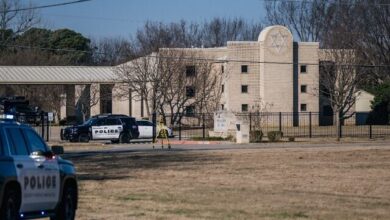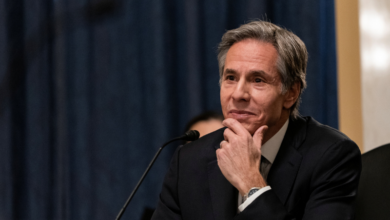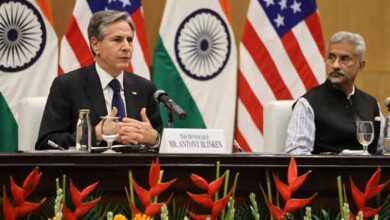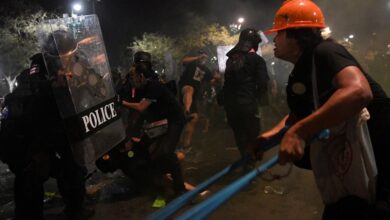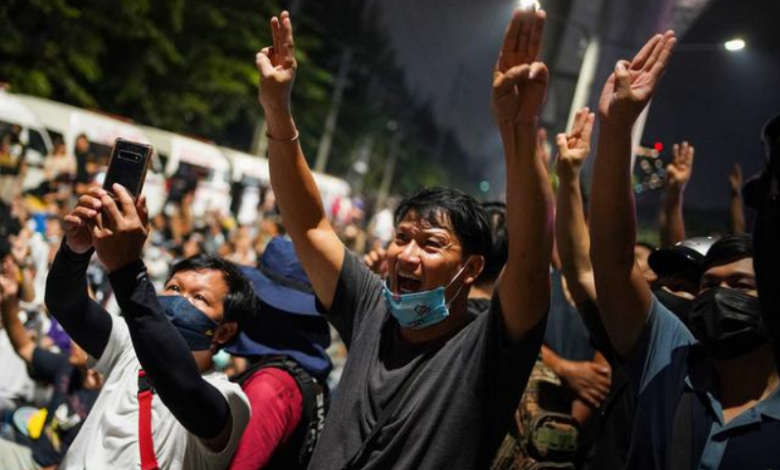
BANGKOK: A Thai court denied bail on Tuesday to four prominent democracy activists after they were indicted for violating the kingdom’s royal defamation law — the first formal charges laid against the leaders of a movement calling for reforms to the monarchy.
Demonstrations in Bangkok last year against the government of former army chief Premier Prayut Chan-O-Cha drew tens of thousands at their peak, with many calling for changes to the country’s once unassailable royal family.
Criticism of the monarchy is taboo due to harsh lese majeste laws that carry penalties of up to 15 years in jail per charge.
Since the movement kicked off in July, more than 50 protesters have been hit with the charge, but authorities have allowed all to be bailed.
But that changed on Tuesday when four major faces of the movement were indicted at Bangkok’s Criminal Court and were denied bail.
“The court has not allowed bail based on it being a case with high penalties, and the defendants may repeat the actions,” said Krisadang Nutcharut, a lawyer for the activists.
The four were also indicted for sedition — which carries a maximum penalty of seven years in jail — as well as violating anti-gathering rules and other laws.
Among them is student activist Parit Chiwarak, also known as Penguin, and human rights lawyer Anon Numpa — arguably the two most well-known faces of the movement.
They will have to undergo a pre-trial investigation before they formally stand trial.
The abolition of the law is among the movement’s list of demands. Critics say the legislation is often used to silence dissent and political opponents.
Penguin is currently facing more than a dozen charges of lese majeste for his role in the protests, while Anon has so far been charged at least seven times.
The movement has slowed in recent months amid fears of a new wave of coronavirus cases, which has led to Bangkok’s partial lockdown.
But following the news of the protest leaders’ indictment, activists on Tuesday called for an impromptu gathering in downtown Bangkok.


